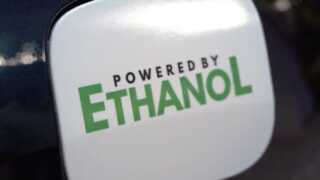Share via:
- A PIL in the Supreme Court challenged India’s E20 fuel mandate, citing vehicle damage and consumer rights, even as the government celebrates achieving ethanol blending targets ahead of schedule.
…Read More India has achieved 20 per cent ethanol mixed in petrol in 2025. View Personalised Offers on Check Offers A Public Interest Litigation (PIL) has been filed in the Supreme Court against the Union Government’s Ethanol Blending Programme, which mandates the sale of petrol blended with 20 per cent ethanol (E20). The petition, filed by advocate Akshay Malhotra, argues that forcing consumers to use only E20 petrol, without offering ethanol-free petrol (E0), violates their fundamental rights and deprives them of informed choice. The plea states that millions of Indians are unaware that the petrol sold nationwide is blended with ethanol, a fact that ought to be disclosed under the Consumer Protection Act, 2019. Vehicles manufactured before April 2023, and even many recent BS-VI models, are not designed to run on E20. The petitioner warns that using the higher blend leads to engine corrosion, damage to rubber and plastic parts, reduced fuel efficiency, and higher maintenance costs. It also alleges that the government introduced the policy without giving automobile manufacturers sufficient time to adapt designs for E20 compliance. Also Read : Government doubles renewal fees for vehicles over 20 years to promote clean air How does the petitioner claim E20 is affecting motorists?According to the PIL, motorists are experiencing lower mileage, rising repair costs, insurance disputes, and increased emissions due to reduced fuel efficiency. Additionally, while ethanol reduces the petrol component, consumers have seen no corresponding reduction in retail fuel prices, with oil companies allegedly retaining the benefit. What reliefs have been sought from the Supreme Court?
- The PIL seeks directions for petroleum companies to:
- Continue supplying ethanol-free petrol (E0) alongside E20.
- Clearly label fuel dispensers with ethanol content.
- Inform motorists about vehicle compatibility at the point of refuelling.
- Ensure that the Ministry of Consumer Affairs enforces consumer protection standards.
- Commission a nationwide study on the long-term effects of E20 on vehicle performance.
How has India performed in ethanol blending so far?The litigation comes at a time when India has achieved a major milestone in its ethanol journey. The Indian Sugar & Bio-energy Manufacturers Association (ISMA) announced that the country has reached the target of 20% ethanol blending with petrol five years ahead of the 2030 schedule. Ethanol blending has grown rapidly from a modest 1.5 per cent in 2014 to 20 per cent in 2025, with production surging from 38 crore litres to 661 crore litres. ISMA claims this has avoided 698 lakh tonnes of carbon dioxide emissions, provided ₹1.18 lakh crore in payments to farmers, and generated ₹1.96 lakh crore for distilleries. The initiative also saved India about ₹1.36 lakh crore in foreign exchange by cutting crude oil imports. “The government’s unwavering policy direction and visionary leadership have made this national success possible ahead of schedule and set a precedent for green energy transition,” said Deepak Ballani, Director General of ISMA. What exactly is E20 petrol?E20 petrol is a fuel that contains 20 per cent ethanol blended with 80 per cent petrol. Ethanol, a biofuel derived mainly from sugarcane and other agricultural by-products, burns cleaner than petrol and reduces pollutant emissions from vehicles. Automakers in India have already started rolling out engines compatible with this fuel. What are the main concerns about E20?Ethanol has a lower energy density than petrol, which means vehicles may deliver less mileage. The Ministry of Petroleum and Natural Gas (MoPNG) estimates a 1 to 2 per cent drop in fuel efficiency for vehicles tuned for E20 and about 3 to 6 per cent for others. Another concern is material corrosion in older engines. MoPNG says industry standards already require corrosion inhibitors and compatible fuel system materials. It adds that some older vehicles may require rubber or gasket replacements after 20,000 to 30,000 kilometres of use, a relatively inexpensive fix during routine servicing. What’s next?The Supreme Court petition highlights a clash between India’s ambitious push for biofuels and the practical challenges faced by motorists. While the ethanol blending programme is celebrated as an environmental and economic milestone, the PIL underscores consumer rights, safety concerns, and the demand for choice. The case is likely to fuel debate over whether the country’s green energy transition has overlooked the readiness of its vehicle fleet and the rights of millions of existing vehicle owners. Get insights into Upcoming Cars In India, Electric Vehicles, Upcoming Bikes in India and cutting-edge technology transforming the automotive landscape. First Published Date: 23 Aug 2025, 08:44 am IST
Source: hindustantimes.com






